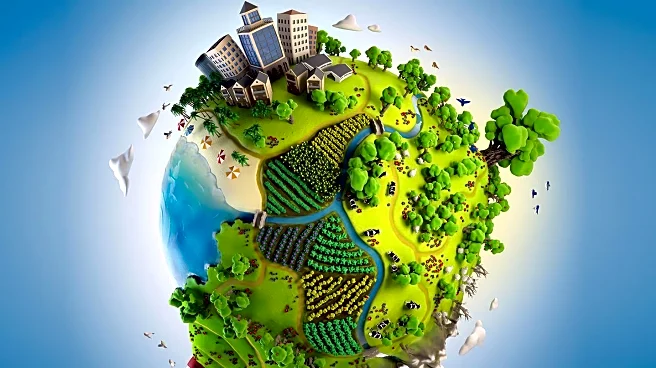What is the story about?
What's Happening?
The Climate Fresk, a card game based on the Intergovernmental Panel on Climate Change (IPCC) report, is gaining popularity as a tool to educate people about climate change. Created by French scientist Cédric Ringenbach, the game simplifies complex climate science into a multiplayer format using cards that depict causes, effects, and feedback loops of climate change. The game has been played by over 2 million people globally, including 33,000 Americans, in various settings such as schools, prisons, and government offices. The aim is to help participants understand the connections between climate science and real-world disasters like floods, wildfires, and droughts.
Why It's Important?
The Climate Fresk game represents an innovative approach to climate education, making complex scientific data accessible and engaging for the general public. By fostering understanding and discussion, the game has the potential to increase awareness and drive action on climate issues. It encourages participants to think critically about the impact of human activities on the environment and consider solutions. This educational tool could play a significant role in shaping public opinion and policy, especially in regions where climate change is viewed with skepticism.
What's Next?
The continued expansion of the Climate Fresk game into more languages and countries suggests a growing global interest in climate education. As more people engage with the game, it could lead to increased advocacy for climate action and policy changes. The game's success in diverse settings, from corporate environments to community groups, indicates its potential to influence a wide range of stakeholders. Future developments may include adaptations of the game to address specific regional climate challenges and collaborations with educational institutions to integrate it into curricula.
Beyond the Headlines
The Climate Fresk game highlights the importance of innovative educational tools in addressing complex global issues like climate change. It underscores the need for accessible and engaging methods to communicate scientific data to the public. The game's success also points to the potential for similar approaches in other areas of public policy and education, encouraging a broader cultural shift towards informed and proactive engagement with global challenges.














